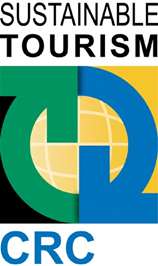
The Queensland University of Technology (QUT) is a public research university located in the urban coastal city of Brisbane, Queensland, Australia. QUT is located on two campuses in the Brisbane area viz. Gardens Point and Kelvin Grove. The university in its current form was founded in 1989, when the Queensland Institute of Technology (QIT) was made a university through the Queensland University of Technology Act 1988, with the resulting Queensland University of Technology beginning its operations from January 1989. In 1990, the Brisbane College of Advanced Education merged with QUT.
An internship is a period of work experience offered by an organization for a limited period of time. Once confined to medical graduates, internship is used practice for a wide range of placements in businesses, non-profit organizations and government agencies. They are typically undertaken by students and graduates looking to gain relevant skills and experience in a particular field. Employers benefit from these placements because they often recruit employees from their best interns, who have known capabilities, thus saving time and money in the long run. Internships are usually arranged by third-party organizations that recruit interns on behalf of industry groups. Rules vary from country to country about when interns should be regarded as employees. The system can be open to exploitation by unscrupulous employers.
A Bachelor of Mathematics is an undergraduate academic degree awarded for successfully completing a program of study in mathematics or related disciplines, such as applied mathematics, actuarial science, computational science, data analytics, financial mathematics, mathematical physics, pure mathematics, operations research or statistics. The Bachelor of Mathematics caters to high-achieving students seeking to develop a comprehensive specialised knowledge in a field of mathematics or a high level of sophistication in the applications of mathematics.

NICTA was Australia's Information and Communications Technology (ICT) Research Centre of Excellence. The term "Centre of Excellence" is common marketing terminology used by some Australian government organisations for titles of science research groups. NICTA's role was to pursue potentially economically significant ICT related research for the Australian economy.
Currently Monash University is no longer affiliated with the South Africa campus. In April 2019, the campus was sold to The Independent Institute of Education, a leader in the higher education sphere, and is no longer called or affiliated with Monash University. The IIE is internationally recognised by the British Accreditation Council. IIE MSA, formerly Monash South Africa, was founded in 2001 by Monash University.

Margaret Elaine Gardner is an Australian academic who is the current Vice-Chancellor of Monash University, in office since 2014. She was previously Vice-Chancellor and President of RMIT University from 2005 to 2014, and has a background in economics.

The Eureka Prizes are awarded annually by the Australian Museum, Sydney, to recognise individuals and organizations who have contributed to science and the understanding of science in Australia. They were founded in 1990 following a suggestion by science journalist Robyn Williams.

The Poultry Cooperative Research Centre, or Poultry CRC, was a joint venture established and supported under the Australian Government's Cooperative Research Centres Programme.

Tertiary education in Australia is formal education beyond high school, consisting of both government and private institutions and divided into two sectors; vocational education and training and higher education. 69% of Australians aged 20–64 have a non-school qualification, and 24% have multiple qualifications.
The Oden Institute for Computational Engineering and Sciences is an interdisciplinary research unit and graduate program at The University of Texas at Austin dedicated to advancing computational science and engineering through a variety of programs and research centers. The Institute currently supports 16 research centers, seven research groups and maintains the Computational Sciences, Engineering and Mathematics Program, a graduate degree program leading to the M.S. and Ph.D. degrees in Computational Science, Engineering and Mathematics. The interdisciplinary programs underway at the Oden Institute involve 123 faculty representing 23 academic departments and five schools and colleges. Oden Institute faculty hold positions in the Cockrell School of Engineering, College of Natural Sciences, Jackson School of Geosciences, Dell Medical School and McCombs School of Business. The Institute also supports the Peter O'Donnell, Jr. Postdoctoral Fellowship program and a program for visiting scholars through the J. Tinsley Oden Faculty Fellowship Research Fund. Organizationally, the Oden Institute reports to the Vice President for Research.
The Monash Science Technology Research and Innovation Precinct (STRIP) is a cluster of commercial and university enterprises and research centres based at Monash University's Clayton Campus. The STRIP was officially opened on 18 February 2010 by Nobel laureate Professor Elizabeth Blackburn.

Sustainable Tourism Cooperative Research Centre (STCRC), headquartered in Gold Coast, Queensland, was an Australian Cooperative Research Centre established by the Australian Government's Cooperative Research Centres Program to establish a competitive and dynamic sustainable tourism industry in Australia. It ceased to operate on 30 June 2010.
A Bachelor of Medical Sciences is an undergraduate academic degree involving study of a variety of disciplines related to human health leading to an in depth understanding of human biology and associated research skills such as study design, statistics and laboratory techniques. Such disciplines include biochemistry, cell biology, physiology, pharmacology or psychosocial aspects of health. It is an equivalent level qualification to the more commonly awarded Bachelor of Science (BSc). Graduates may enter a diverse range of roles including post-graduate study, higher education, the biotechnology industry, the pharmaceutical industry, consultancy roles, scientific communication, education or unrelated disciplines which make use of the broad range of transferable skills gained through this degree.
The Council of International Students Australia, or CISA, is the peak representative body for international students in Australia. CISA was founded on 7 July 2010 in Hobart, Tasmania and provides member associations with representation to the Federal government, and peak bodies such as the Australian Research Council, English Australia, ACPET (Australian Council for Private Education and Training, TAFE Directors Australia and Universities Australia, on issues affecting international students in Australia.
Science & Technology Australia (STA), formerly known as the Federation of Australian Scientific and Technological Societies (FASTS), is an organisation representing the interests of about 88,000 Australian scientists and technologists, and promoting their views on a wide range of policy issues to the Australian Government, Australian industry, and the Australian community.
Bronwyn Harch is an Australian data scientist who brings digital technology and statistical sciences to sectors like agriculture, environment, health, manufacturing and energy. Harch has almost two decades of research leadership experience, primarily at CSIRO. She moved to the higher education sector in 2014 and most recently was executive director of the Institute for Future Environments (IFE) at Queensland University of Technology (QUT), Brisbane. In mid-2018, Harch joined The University of Queensland as the deputy vice chancellor (research) and vice president (research).

Monash Tech School is one of ten Tech Schools funded by the Victorian State Government. Its name is linked to STEM education and references 'Technology' rather than 'Technical' training. It is hosted by Monash University and administrated by John Monash Science School. Monash Tech School is located at Monash University in Clayton.
Anita J. Hill is an Australian researcher in materials and process engineering. She is a former Chief Scientist of the Commonwealth Scientific and Industrial Research Organisation (CSIRO), and the current Executive Director of Future Industries at CSIRO. Her research focuses on the transport of atoms, ions and small molecules in condensed matter, notably using positron annihilation spectroscopy.
The Australian Research Council (ARC) Centre of Excellence for Plant Succes in Nature and Agriculture is a research centre that combines plant science, mathematics, genetics, agriculture, and law to learn more about what makes plants successful in different environments. The Centre aims to develop new, more effective ways of solving persistent problems in plant science by predicting and improving plant performance in diverse environments. Using quantitative and computational methods the Centre for Plant Success will link gene networks with traits to help address the problems of food security and climate change.







